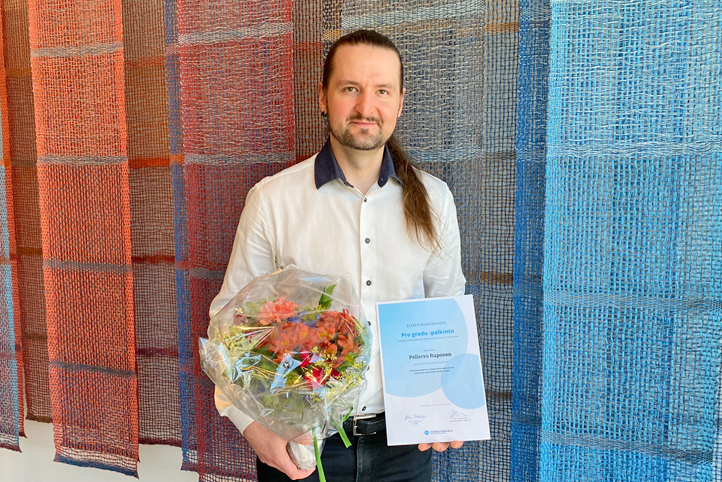Pellervo Ruponen the winner of the 2023 Pro Gradu Award

The Pro Gradu Award of the Finnish Centre for Pensions has been granted this year to Pellervo Ruponen (MSE). In his master’s thesis Predicting diagnosis classes from medical texts using deep transformer-based models, Ruponen examines the classification of texts in the assessment of disability pension applications.
In his thesis for Aalto University, Ruponen applies various language models to reports written by pension insurance physicians and compares pre-trained Finnish language models with, for example, the baseline BERT model.
According to the award evaluation, the results of the thesis provide a basis for future practical applications and research in the pension insurance field and enables a more efficient and precise disability pension assessment process.
Pro Gradu Award motivates to look for new solutions
According to Ruponen, who works at Keva in projects involving data analytics and AI, the recognition provides additional motivation to continue to develop the pension field and find new solutions.
According to him, large language models have aroused widespread interest, but their performence may suffer in the problematic details, such as the jargon, of the pension field.
“In these situations, it may be more efficient to train a smaller language model to focus on a clearly defined task, as I have done in my work. These models could be used in the various stages of the disability process to, among other things, improve the insurance physicians’ and pension handlers’ information retrieval and monitor the impartiality of the process.”
Ruponen finds customer service to be another interesting application area. AI could be used to automatically classify messages and generate response models to support customer service agents.
Thesis evaluated by Elina Pylkkänen
According to Elina Pylkkänen, Economist and Under-Secretary of State, Ruponen has boldly and creatively tackled the challenge of the pension insurance system with the help of the constantly developing language models.
She argues that applying different types of language models to expert statements and the individual’s own assessment of their ability to work allows for a more efficient and precise disability pension assessment process.
Pylkkänen points out that Finland has the best individual-level data sets in the world. They could be utilised considerably more than they are today in assessing the need for rehabilitation and in processing disability pension applications.
Pylkkänen finds it particularly important that language models could be used for rehabilitation interventions at the appropriate time and of the appropriate type to extend the working lives and shorten periods of absence due to illness of Finns.
The Pro Gradu Award of the Finnish Centre for Pensions is granted to a distinguished master’s thesis on a topic of interest to pension provision and accepted at a Finnish university in the previous calendar year. The award is 2,000 euros.
Pellervo Ruponen’s master’s thesis: Predicting diagnosis classes from medical text using deep transformer-based models